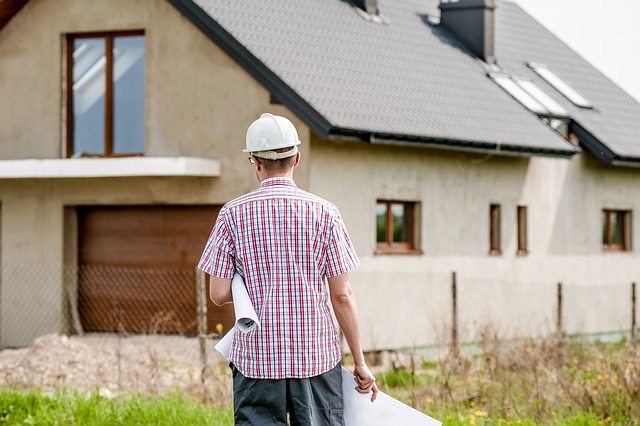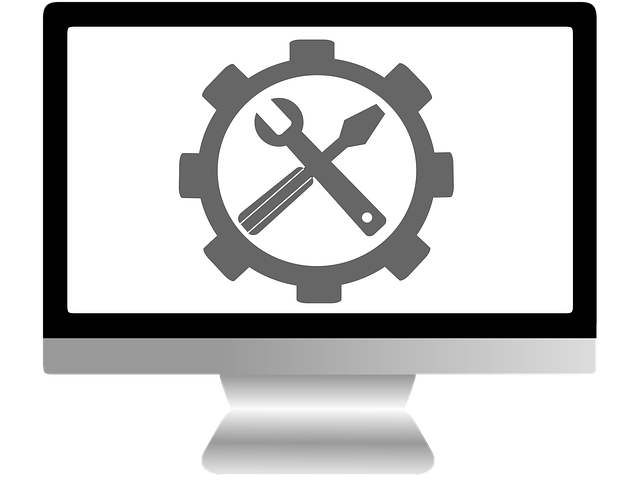Effective home repair and strategic planning are integral to successful renovation projects, ensuring that your home improvements align with your financial capabilities and personal goals. Start with a detailed assessment of your property to identify necessary repairs and prioritize them within a realistic budget that accounts for all potential costs, including materials, labor, permits, tools, and a contingency fund. A phased approach to renovation allows you to manage expenses over time, focusing first on critical structural issues and vital systems like plumbing and electrical. Regularly update your budget throughout the project to stay within your means while achieving desired enhancements. Effective project management is key, which involves setting clear objectives, outlining a detailed scope of work, and maintaining clear communication among all parties involved. Monitor progress against the planned timeline to address any issues promptly, and keep a record of every step from permits to final inspections for future maintenance and accountability. By adhering to these strategies, your home repair and maintenance projects are more likely to proceed smoothly with excellent results and minimal disruption, all while considering home repair and maintenance best practices.
Embarking on a home renovation journey can transform your living space into a reflection of personal style and functionality. This article navigates the pivotal aspects of strategic planning, budget management, and project oversight that are indispensable for successful home repair and maintenance endeavors. Delve into ‘Strategic Planning for Home Repair and Maintenance: Laying the Groundwork for Successful Renovations’ to set a solid foundation. Followed by ‘Effective Budgeting Techniques for Home Renovation Projects,’ which offers practical financial strategies. Lastly, ‘Project Management Best Practices in Home Repair and Maintenance: Ensuring a Streamlined Process’ provides insights on managing your renovation project effectively. With these guiding principles, homeowners can achieve their vision with confidence and precision.
- Strategic Planning for Home Repair and Maintenance: Laying the Groundwork for Successful Renovations
- Effective Budgeting Techniques for Home Renovation Projects
- Project Management Best Practices in Home Repair and Maintenance: Ensuring a Streamlined Process
Strategic Planning for Home Repair and Maintenance: Laying the Groundwork for Successful Renovations

Effective home repair and maintenance hinges on strategic planning, which is the cornerstone of successful renovations. Homeowners embarking on such projects should initiate the process by conducting a thorough assessment of their living space. This involves identifying areas that require immediate attention as well as those slated for future enhancements. A detailed inventory of assets and liabilities within the home allows for targeted planning, where resources are allocated efficiently to address issues like aging plumbing or outdated electrical systems. It’s imperative to consider the longevity and durability of materials chosen; selecting options that offer both functionality and longevity will contribute to fewer repairs down the line. Moreover, establishing a maintenance schedule post-renovation is crucial for preserving the new state of the home. This schedule should include regular inspections and necessary upkeep tasks, ensuring that the property remains in optimal condition and minimizing future repair costs.
To facilitate a smooth renovation process, it’s advisable to budget for unexpected expenses. A well-planned contingency fund can alleviate financial strain should any unforeseen issues arise during the renovation. Additionally, engaging with professionals such as architects, contractors, and designers from the outset can offer valuable insights and guidance, tailored to your home’s specific requirements. Their expertise ensures that all aspects of the repair and maintenance plan are grounded in practicality and compliance with relevant building codes and regulations. With a solid plan in place and professional support, homeowners can navigate the complexities of renovation with confidence, leading to a more comfortable, efficient, and valuable living space.
Effective Budgeting Techniques for Home Renovation Projects

Effective budgeting is a cornerstone of successful home renovation projects. Homeowners often underestimate costs, leading to financial strain and unfinished work. To mitigate this risk, it’s crucial to conduct thorough research on the current prices of materials and labor in your region. Itemize all potential expenses, including not just the obvious ones like construction materials and contractor fees, but also permits, equipment rentals, and a contingency fund to cover unexpected costs. A well-crafted budget should account for both the best-case and worst-case scenarios.
In addition to initial cost estimation, home repair and maintenance planning is essential for long-term financial health. Breaking down the project into phases can help spread out expenses over time, making the renovation more manageable. Prioritize renovations based on necessity, value, and personal preference. For instance, addressing critical structural issues or updating essential systems like plumbing and electrical should take precedence. By employing a phased approach, homeowners can ensure that their renovation plans align with their financial capabilities, leading to a more sustainable and rewarding home improvement experience. Regularly reviewing and adjusting the budget as the project progresses helps maintain control over the renovation’s trajectory and final cost.
Project Management Best Practices in Home Repair and Maintenance: Ensuring a Streamlined Process

Effective project management is pivotal in home repair and maintenance, ensuring that every renovation project, regardless of size or scope, is completed efficiently, on time, and within budget. A well-structured plan lays the foundation for a streamlined process. It begins with a thorough assessment of the work required, aligning it with your goals, preferences, and financial constraints. This initial phase involves setting clear objectives, which will guide the subsequent steps. Homeowners should prioritize creating a detailed project scope that outlines every task, material needed, and the timeline for completion. This clarity prevents misunderstandings and helps in allocating resources effectively.
Once the planning is underway, the focus shifts to coordination and execution. Utilizing home repair and maintenance best practices ensures that every stage of the renovation is handled with precision. Communication is key; regular updates between all parties involved—contractors, designers, and homeowners—facilitate a cohesive approach. Monitoring progress against the established timeline allows for any adjustments to be made promptly, should delays occur or unforeseen issues arise. Documentation of each step, from permit acquisition to the final inspection, provides a record of the work done, which is invaluable for future reference and maintenance. By adhering to these project management best practices, homeowners can rest assured that their repair and maintenance projects will be completed with minimal disruption and optimal results.
Homeowners embarking on home renovation projects can significantly benefit from strategic planning, effective budgeting, and project management best practices. By laying a solid groundwork for success through thorough planning, allocating finances wisely, and managing the process efficiently, your renovation endeavors are more likely to yield satisfying results. Home repair and maintenance hinge on these principles, ensuring that each project, whether large or small, is handled with care and attention to detail. With the right approach, your home will not only regain its charm but also stand up to the test of time. Remember to plan, budget, and manage with precision for a successful home renovation experience.
